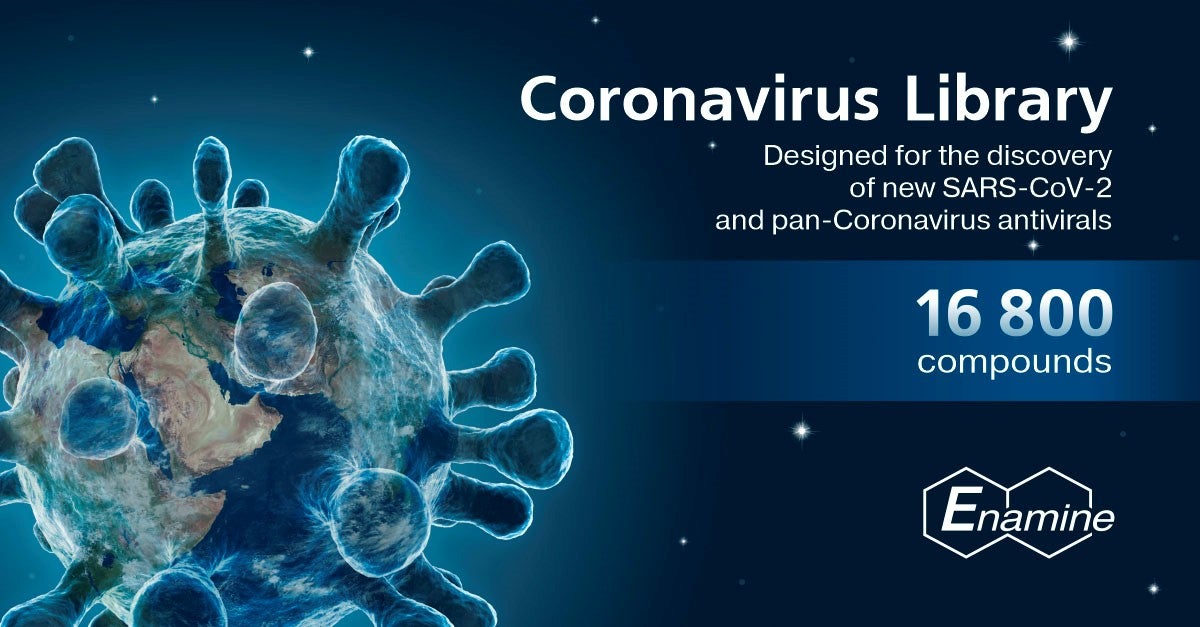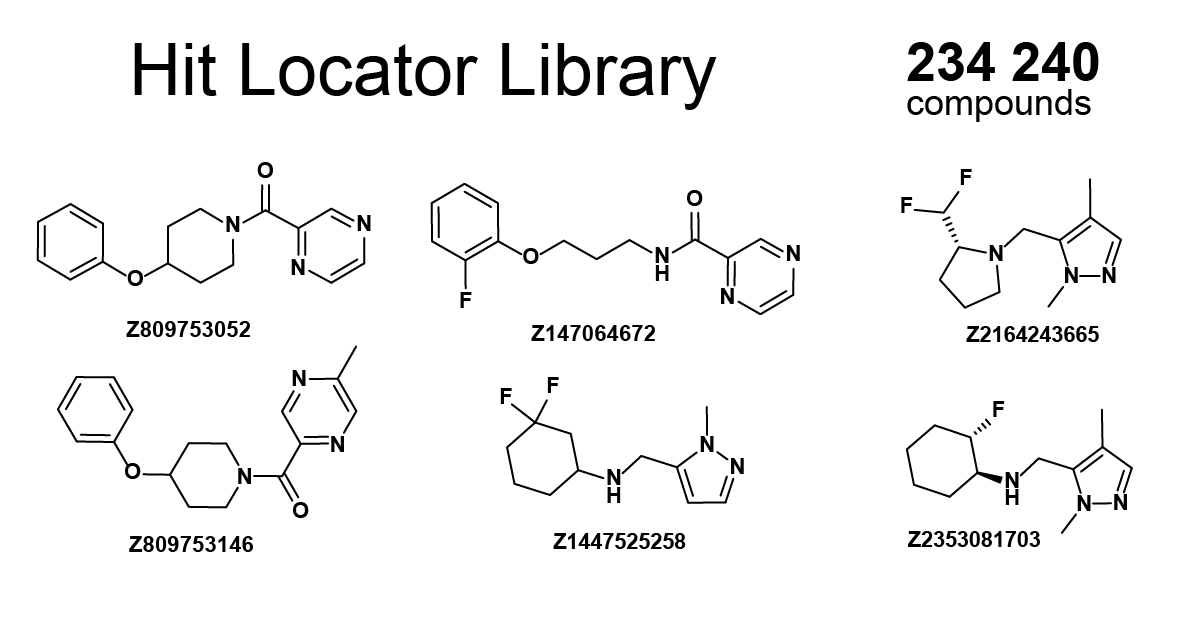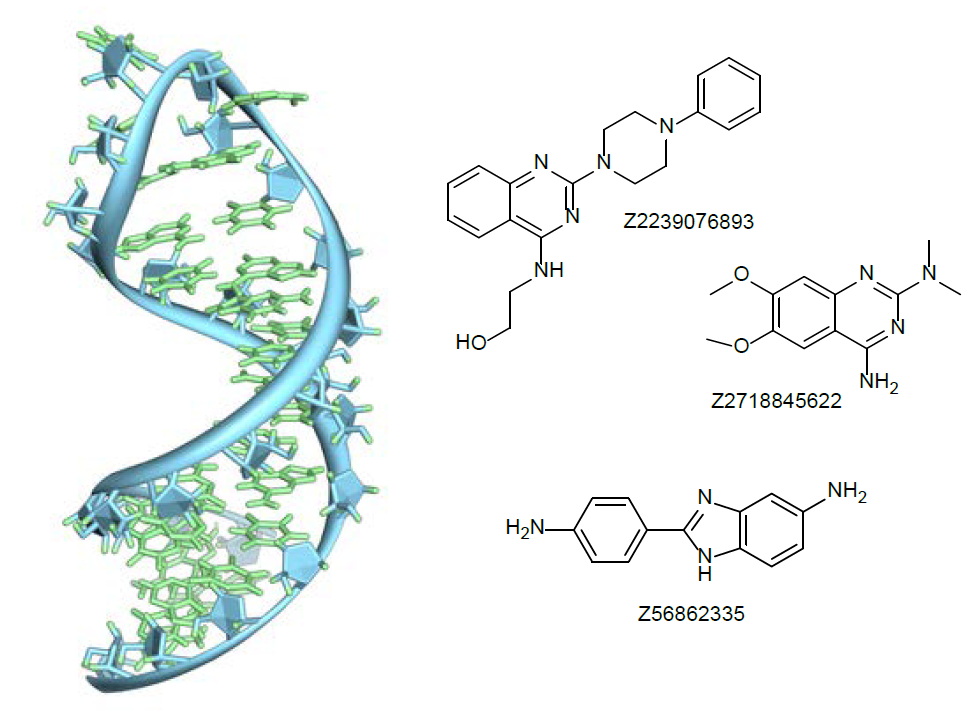Analogues of Piperidine for Drug Design
Herein, we have designed and synthesized a library of piperidine analogues for drug design. We offer more than 100 unique piperidine analogues on a 5-50g scale from stock.

Established in 1991, Enamine is a privately owned chemical company focused on the synthesis of building blocks for drug design programmes for pharmaceutical industries.
You have successfully submitted your enquiry. Someone from our company will respond ASAP

Established in 1991, Enamine is a privately owned chemical company focused on the synthesis of building blocks for drug design programmes for pharmaceutical industries.
The company created an extensive stock of building blocks, containing more than 200,000 compounds, and adds thousands of new chemicals every month.
Having created a unique collection of building blocks in gram amounts, Enamine gained a unique competitive advantage allowing to rapidly design and synthesise versatile screening libraries, focused on significant and promising biological targets and pathways.
Enamine synthesised more than two million screening compounds, possessing suitable drug-like properties, and being chemically diverse and novel.
Numerous marketplaces, databases and chemical brokers represent Enamine’s compounds. However, consumers can also order screen libraries on the company’s website, and can browse its panel of ready-to-ship libraries and diversity sets, fragment collections, and focused and targeted libraries.
For purchasing individual compounds or smaller sets, the company’s online store enables the use of its substructure and similarity search tools for required chemical structures and molecules.
It is significant for Enamine’s clients that the discovered hits found in the company’s collection are efficiently followed by resupply of stock-available dry samples for hit confirmation, swift analogues provision, and by the synthesis of follow-up compound libraries for hit expansion and hit-to-lead initiatives.
Clients can also purchase reagents used for library synthesis from Enamine’s 200,000 building block catalogue, which the company can complement from the superset of millions of tangible building blocks with only a four-week lead time.
Access to the most extensive collection of chemical starting points allowed Enamine to go a step further, creating a next-generation tangible chemical space.
The Readily Accessible (REAL) database contains more than a billion molecules, which are synthesisable by the company within up to four weeks with an average success rate of at least 80%. It can also reach a 100% success rate on a smaller selection of compounds, so clients can access a billion molecule space as if it were in stock.
Exploring a larger number of compounds allows clients to identify the most valuable, and having them delivered directly from a single prominent supplier helps to save significantly on costs and time.
For clients not planning to screen in-silica large compound libraries, there is an option for a range of medChem pre-selected targeted compound sets such as kinase, protease, g protein-coupled receptor (GPCR), ion channels targeted libraries, diversity sets and fragment libraries. Moreover, the company’s medChem team can design unique custom libraries according to specific project needs.
Enamine also offers on-site biological screening.
From an in-house synthesis of original compound libraries, Enamine’s building blocks enable researchers worldwide to accelerate hit-to-lead projects and provide innovative elements for drug design programmes.
Enamine offers its consulting expertise on selections of compounds and supplies clients with already formatted libraries of reagents, which will react selectively with scaffolds to yield a set of required products. The company has accumulated a vast experience in parallel library synthesis and can readily share it with prospective clients.
One of the decisive factors in finding a reliable partner for outsourcing chemical synthesis is how rapidly a contract research organisation (CRO) can source chemicals. Enamine has 90% of the necessary chemicals supplied within a few hours from its on-site inventory.
Enamine has laboratory facilities occupying more than 15,000m² in a single site in Kyiv, Ukraine. The company is located in several recently constructed buildings, providing state-of-the-art instrumentation, infrastructure and analytical services to over 500 skilled chemists, including a large number of PhD-level scientists.

Herein, we have designed and synthesized a library of piperidine analogues for drug design. We offer more than 100 unique piperidine analogues on a 5-50g scale from stock.

Selective incorporation of deuterium into organic molecules can profoundly alter their physical, chemical and biological properties.

Enamine Ltd. a provider of drug discovery services empowered with the world’s largest collections of building blocks, fragments, and screening compounds announced today that it forms a strategic alliance with Chemspace, an online marketplace leader for small molecules, and will use the company as its exclusive aggregator platform to supply worldwide all its catalogue products starting from January 1, 2022.

Enamine, a leading provider of R&D Services as well as Screening Compounds, Fragments, Building Blocks and specialized libraries for Drug Discovery, announced today that it had implemented Collaborative Drug Discovery's CDD Vault to manage its biological assay data. The platform will enable seamless and secure exchange of information between Enamine and its partners in pharmaceuticals, biotechs and other organizations conducting drug discovery research.

Leading chemical research organisation and manufacturer of the largest collections of novel building blocks (225,000+) and screening compound libraries (2,740,000+) across the globe, Enamine Ltd, is thrilled to announce the release of the Coronavirus Library.

Enamine's Coronavirus Library is designed for the discovery of new SARS-CoV-2 and pan-Coronavirus antivirals, containing 16,800 compounds.

We created a Hit Locator Library (HLL) that most closely represents the diversity of 2.8 M structures available from stock at Enamine.

Having the world’s largest compound collection we keep producing over 150 000 new screening compounds and over 25 000 new building blocks for hit development each year.

The recent substantial progress in RNA biology underscores the importance of RNA in normal and aberrant cellular functions. RNA is essential for transcriptional regulation, translational regulation, protein function, and catalysis, responsibilities that have classically been reserved for proteins.

We can help you to escape from the availability bias and benefit from the huge diversity of drug-like compounds in your virtual screening campaigns and search for hit analogs.